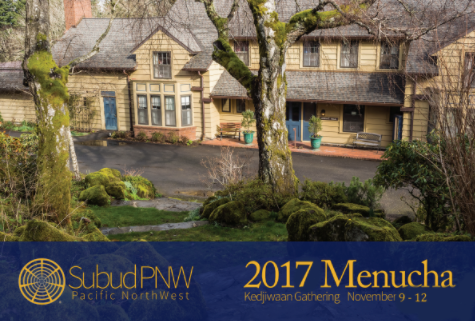Join us THIS Sunday, January 21, 2018, for a general meeting to happen after Latihan. You can find out what your committee has been up to. Call the Chair of Subud Greater Seattle, Honora if you have any questions.
Author Archives: Paul
Kedjiwaan Day Huge Success
The first Seattle Kedjiwaan Day in many months happened Saturday, December 9, 2017, at the Subud House in Seattle. With meticulous planning by the Subud PNW Regional Helpers, Elisha Gullixson, Elizabeth Flanders, Benjamin Boyce, Isadora Roth and Oswald Norton, the day started with a strong Latihan and then had an opening circle.
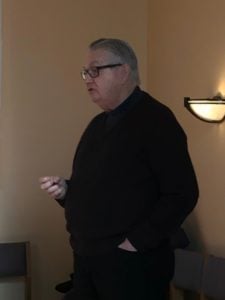
Elisha Gullixson, Subud PNW Regional Helper sets the ground rules
The opening circle tradition comes out of Menucha and many members, still buzzing from their Menucha experience from a month ago are running with the momentum that long-time annual Subud event provides. That members can talk about the issues in their own lives, as well as their hopes for the day, has a cathartic effect for individuals and deepens compassion and understanding in general. Members who felt they were not appreciated, or just needed a hug, or were at a crossroads in their personal lives had a chance to articulate and find relief, support, or at least a path forward by day’s end.
For the opening circle, it was suggested members talk about what is happening in their lives and what they hoped for Subud Greater Seattle, with a three minute time limit.
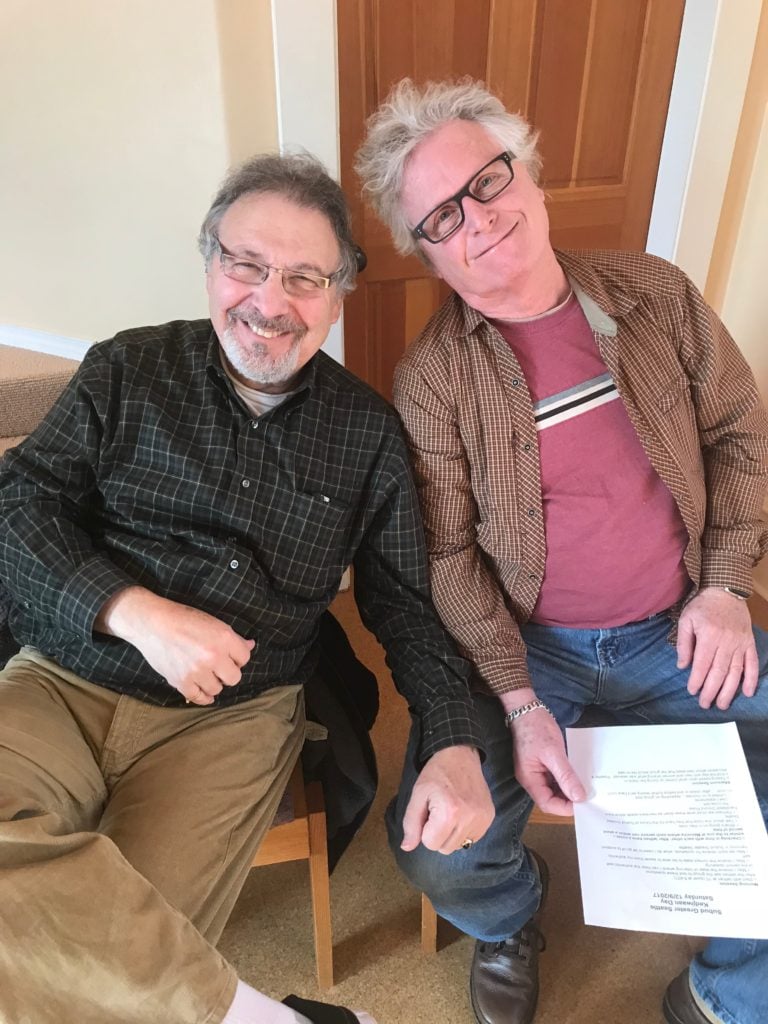
Hanafi Libman and Aaron Mann, the bird feeders
One of the more humorous moments was when two members, local helper Hanafi Libman and Subud PNW Chair Aaron Mann, (attending from Spokane) discussed how one of the pleasures in their own lives was watching the wildlife attracted to their respective bird feeders. Aaron mentioned that neighborhood turkeys have found his stash and must negotiate the squirrels, who quite nimbly get their share of sunflower seeds.
A potluck lunch followed, with modified picadillo and sugar-free upside cake being two of the highlights. The attendees decided after lunch to have another latihan and then attend to personal testing, awareness testing and other activities. Awareness testing was described by one attendee as “waking up your body to the latihan” as members were allowed the opportunity to experience how the latihan felt in different parts of the body.
Many members left smiling and Subud Greater Seattle Chair Honora suggested we should plan on doing this again in a couple of months. What a great way to deepen harmony in our community!
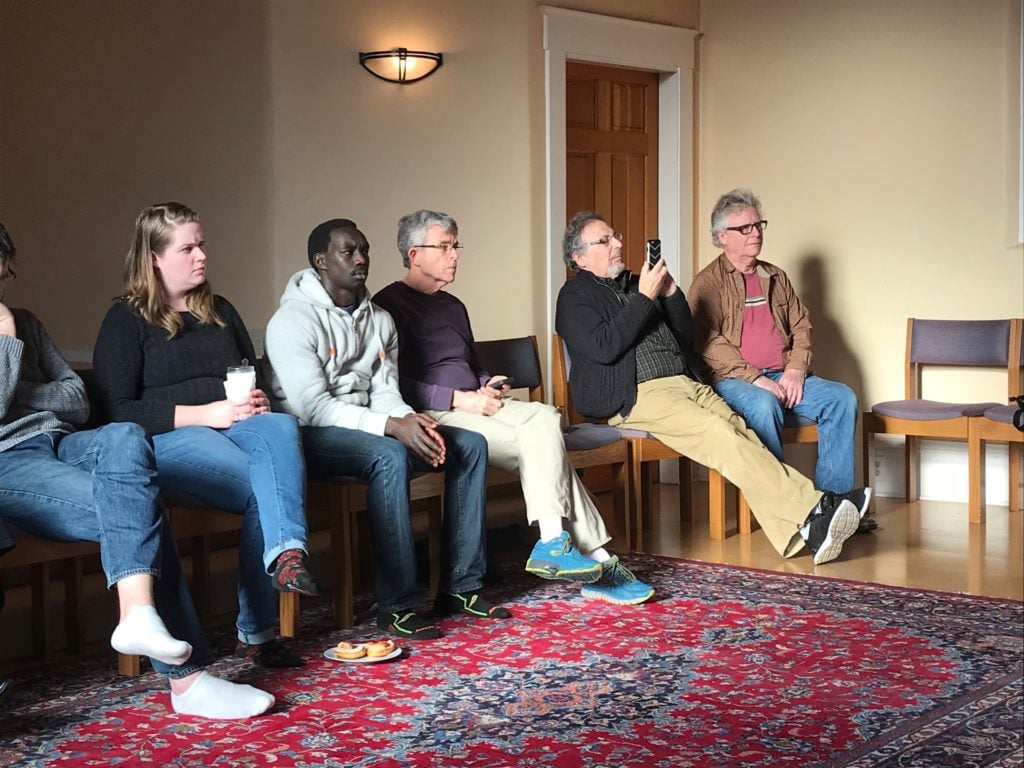
Melinda Wallis Recovering
From Malama MacNeil:
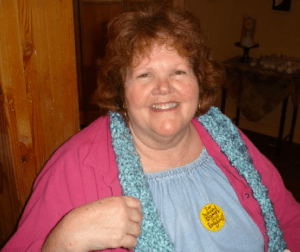
Melinda Wallis
I sorrowful call came to me today from Henrietta Haines with news that our sister, Melinda Wallis, of the greater Seattle area, is unresponsive and not expected to survive. Let us pray and let us latihan on behalf of her graceful exit from this mortal life and her soul’s return to the Source of Life, the All Embracing One Great Loving Mystery.
UPDATE Saturday morning Dec 9. Regional Helper Elizabeth Flanders visited Melinda and reports she is conscious and would love Latihans done for her well being.
Kedjiwaan Day Sat Dec 9

The Subud House
This Saturday there will be a kedjiwaan day at the Seattle Subud House. Oswald Norton and other Regional Helpers are working on the agenda, but here is a draft:
Morning Session:o Start with latihan at 10 (quiet at 9:45?)After the latihan ask the group to test these questions:+ May I receive the state of listening where I can hear the authentic self of the person speaking+ May I receive the correct state to be able to speak from my authentic self.+ May we each receive for ourselves, what do I need to let go of to support harmony in Subud Greater Seattle.o Checking in time with each other: After latihan have a circle – similar to the one at Menucha where each person can within a short period of time:+ What’s going on in their lives.+ Talk about one hope that they have for the future of Subud Greater Seattle+ Perhaps we could write these down as members speak about them.Facilitated Ground Rules:– No cross talk– Use I statements– Limited to nn minutes – depending on group size.o Lunch…..after check-in and before further testing we’d have lunchAfternoon Session:o Testing based upon what comes up during the check-in.o End the day with men and women sharing what was received. Possibly a discussion about next steps that the group would like to take.
Please bring a dish to share with your Subud Sisters and Brothers.
National Congress in Vancouver, WA!!!
MARK YOUR CALENDAR!
UPCOMING EVENTS
Subud USA National Congress
Vancouver, WA May 25-28
Registration opens soon!

Vancouver, Washington, USA
Menucha Registration is Open
The Pacific Northwest Regional Helpers invite you to our annual PNW Kedjiwaan retreat at the Menucha conference center, located twenty minutes outside of Portland, Oregon. November 9-12, 2017.
We have designed this year’s gathering with the shape of the circle in mind: with a Friday opening circle in the morning where we can share and listen to each other’s spiritual journeys, and a Sunday closing circle for sharing our experience of the weekend. Saturday will be the “center point” of the weekend, with more time set aside for kedjiwaan activities, such as testing how each of us put the latihan into practice in our lives—or any other topics that emerge.
As with previous PNW Kedjiwaan gatherings at Menucha, most all “content” is “user generated”—if you have a talent, a project, or a skill to share there’s a glorious gift shop and titillating talent night to contribute to—and plenty of rooms to dance and sing and slouch with your friends inside.
We hope to see you at this beloved event! If you can make it, we strongly suggest attending all three days to receive the full experience.
Additionally, the Pacific Northwest Regional Helpers are still looking for one more woman helper to join our ranks—even the willingness to test to test (not a typo) for this position is appreciated!
God bless!
Your PNW Regional Helpers
—Elizabeth Flanders, Isadora Roth, Elisha Gullixson, Oswald Norton, Benjamin Boyce*
* We are also delighted to welcome Margarite Charney and Beata Alexander as supporting Regional Helpers for this year’s event.
How much does Menucha cost? Check the rates here
When you register, please consider making a donation to the Assistance Fund so that those who need assistance can share this wonderful weekend with us.
Questions? email us menucharegistrarATgmail.com
REGISTER NOW
Subud & Culture
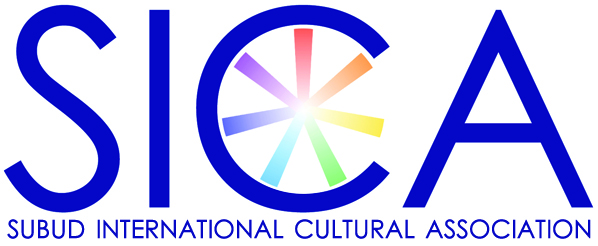
SICA
A fascinating discussion of the foundation of SICA came up on the SICA Facebook page yesterday:
Muhammad Isman Kanafsky:
From “Susila Budhi Dharma”
An excerpt from English renderings of Susila Budhi Dharma, originally
received as a high Javanese poem by the late R.M. Bapak Muhammad
Subuh Sumohadiwidjojo at Jogjakarta in l952 and later translated in
Bahasa Indonesia. The English is derived from the Indonesian version of
the text.
In this way you will soon become adept at doing work that is in tune with
your soul, and this will certainly make your life happy, for this skill will
grow from your human soul which will have brought to life your whole
inner feeling. As a result, my child, you will acquire a lasting interest in
your work and your achievements will not be disappointing.
This is the true meaning of culture, for its source is the human soul, and it
is received in an inner feeling that has awakened and become free from the
influence of its own subordinate powers. It is a culture filled continuously
with the life-force. That is why, when you reach this stage, the work you do
will be a means for your worship of God Almighty.
Seen from an ordinary, outer point of view, your work will appear no
different from ordinary work. In reality, however, there will be a very great
difference. For ordinary work and skill are acquired by learning from
someone else – or from a group – unable yet to determine whether or not
the work is in harmony with the one’s identity. But the skill in work that
you will acquire in this way is of a quality which has its origin in the human
soul.
Later, therefore, in doing your work, you will act in harmony with yourself,
both inwardly and outwardly, and so you will certainly progress in your
work in a way which will correspond with the advances and changes of the
times you live in.
It is therefore hoped that you, my child, will not neglect these spiritual
exercises (latihan kejiwaan) for in reality they constitute a way which is
easy to follow, which does not require you to isolate yourself from others,
and which can bring you an enlightenment which will strengthen your soul.
Moreover, you will gain a great deal by this means and will easily achieve
those things which correspond to your true needs. Furthermore, in this
state – which cannot be comprehended by the thinking mind – you will
always be enveloped by the life force, with the result that you will easily find
the way, which will then be wide open to you, for understanding the true
significance of your own life.
Plainly then, the skill in work you will acquire as a result of these spiritual
exercises is truly a quality of genuine culture, for it is born and grows as a
result of the human jiwa becoming free from the influence of one’s
subordinate or ancillary forces.
So for that reason this culture will neither destroy human knowledge, nor
close the way whereby man may worship God – for the truth is that it has
its origin in God and returns to God again.
Latifah Taormina:
Yes, what Matthew asked me directly was”What is the Meaning of SICA?” I will share my response, but it pales in comparison with the initiative Matthew has launched here in California re PUTTING IT INTO PRACTICE
— putting our latihan into practice. It’s like a whole new wave of LIFE and hopefully it will spread faster than the fastest virus out there and get us all infected with how we can put our latihans into practice in our lives, in our work, in Subud and in the world. Thank you, Matthew. And so…..re my answer to Matthew’s query. This is what I shared:
SICA stands for Subud International Cultural Association. How we describe
SICA to the general public is on our SICA website here;
http://www.subud-sica.org/index.php?hkat=2&ukat=1The Indonesian word for culture is kebudayan. It comes from two words: budhi —as in Susila Budhi Dharma —that essence of the power of God that is within every human being — and daya or action. In other words it is the
action of the Power of God that we express in our lives. Bapak once said that this way: “Culture is the latihan of life.” More of what Bapak said about culture is on the SICA website here: http://www.subud-
sica.org/index.php?hkat=4&ukat=9
Now culture, or kebudayaan, is a movement or an action of the budhi, or the inner nature of man, which in other words can be called the jiwa. So, in the olden days, when people used to sing or perform, what they did had the nature of a latihan. It had the effect of awakening the jiwa of those who listened to it. And what came out, what they did, was entirely received, something that they were moved to do from their jiwa, from within.
But this is not the situation today, because nowadays people attach more importance to their heart and mind, to their pleasure, than they do to their jiwa. So that today the culture which used to be a living culture is now a dead culture. In fact, people nowadays sing in order to sell what they sing. They pay attention merely to the heart and mind and to their own pleasure. So that, in fact, we human beings are now beaten by the animals. When animals are happy, when they feel joy, they demonstrate their closeness to their Creator by singing — (at this point, a nearby bird began to sing, and Bapak continued) — as for example, the birds.
The song of the bird is still a demonstration of its closeness to its jiwa. But that is not the case with us human beings. What has happened to us, what we have received in the latihan kejiwaan, is something that can bring us back to the place where we were, to the closeness of the jiwa, which we used to have in olden days.
This is why it is really necessary for us to awaken culture, or that culture should awaken again within us, the culture which truly originates in the human nature and represents humankind’s worship of Almighty God.”
— Wolfsburg, 1972
Ibu also spoke about culture and why Bapak set up the Subud International
Cultural Association, That’s on the SICA site here: http://www.subud-
sica.org/index.php?hkat=4&ukat=10
A few things that I cannot forget are things Bapak said about SICA and
culture before he died. SICA was established at the Anugraha congress in
1983. Richard Engels of Germany and I were selected by Bapak to be its
first chair and vice-chair. We, along with the rest of the council, met with
Bapak every year between that time and his passing in 1987.
At one of those meetings, after a report of our activities from Richard, SDIA
started to make their report and Bapak stopped to go back to SICA. We
were all in his living room and I was not more than 8 feet from Bapak. And
he stood up as he was so excited by what he was seeing about the future of
SICA. I could see that he was telling about things he was actually seeing —
like watching someone watch a movie or TV show, but we couldn’t we what
he was seeing. There is no recording of this. But he was talking about how
wide culture was and that through these different activities ‚ singing,
dancing, and on and on (not just the arts) one could worship God. And he
was excited because he was seeing that this is how people would come to
Subud in the future. And then he said that one day there would be a book,
and it would show that “Subud is very big and very wide and has every kind
of thing in it.” And he then looked straight at me and said, “And SICA’s job
is to make a film of this book. And Los Angeles is a good place for it.” (I was
living in LA at the time.)
Unfortunately there were writers in the room who then started asking
about the book. I kinda felt they were trying to find out if maybe they would
be the ones to write the book. Bapak made it clear that it had not yet been
written. At one point, he looked at Richard and said Richard could write the book but it would have to be in English. Richard did write a book, but not in English. And I read part of it, but it didn’t feel like “the book.” But that’s
me. But….the clue is the book is in English.
That’s part of why I want to do this little film of that poem. To make a place
holder for SICA Films. It doesn’t have to be that name, but it’s the intention
behind it that matters— I think.
I really like the simplicity of Ibu’s descriptions of SICA.
One is: “SICA is for activities that emerge from the development of the
human soul.”
Another is this; “This is why Bapak made the decision to set up a Subud
wing called the Subud International Cultural Association, or SICA. Bapak
hoped that through SICA, Subud members who had a talent in a particular
field would create something truly new or different, something that would
touch other people, meaning people who are not in Subud, people outside
Subud.
So in this way, through SICA, we can provide proof to people who are not in
Subud. This is needed because we cannot explain Subud to other people
who are not opened, to people not in Subud. They cannot understand what
Subud is if they have not experienced the opening, or how the latihan fills
us.
So by creating something for other people, you may be able to demonstrate
something that without their being aware of it, may exert a positive
influence on people who are not in Subud. So we hope that Subud will
spread through SICA through activities that other people can see.
This is particularly hoped for from young members who have a lot of energy
– that they will generate something new that will also be a part of SICA’s
activities.”
The above bit from Ibu is my mojo for action. That’s why I feel sad when we just do SICA things for Subud people . I feel we’re suppose to put things out in the world.
One reason SICA activities tend to stay inside Subud may be that many are
shy to even say they are part of Subud. SD doesn’t have Subud in its name.
SICA does. But I am not shy to say I’m in Subud or that SICA is the SUBUD
International Cultural Association. Maybe because I lived in Indonesian all
those years and Wisma Subud is over the entrance gate. Its a public place.
Everyone knew about Siubud. It wasn’t anything we had to hide. We
weren’t afraid of being considered a cult. And there were some who thought
that even there. We were grateful to be part of Subud.
One last bit….Salamah Pope once asked Bapak what the difference was
between Susila Dharma and SICA — as both have missions that go out into
the world. She said that Bapak told her that “we do Susila Dharma to
correct the mistakes of the past, and we do SICA to build a human future.”
So that’s our SICA tagline: “Working to nurture a human future through
art, culture, and creativity.”
Like · Reply ·
Latifah Taormina:
Note: While Ibu and Bapak say that SICA is for activities that emerge from
the development of the human soul, SICA cannot make anyone’s soul
develop. That’s between you and God. What SICA can do is present, share,
celebrate, support, encourage, advance those activities. How do we
recognize those activities? I think one clue is that they are ALIVE.
Like · Reply ·
4 · 5 hrs
Remove
Leonard Dixon To quote someone other than Bapak:
“Receive and transmit!”
~ Peter Gabriel
Like · Reply ·
Latifah Taormina:
Bapak also said in those meetings that technology is also culture. He said
technology is born in the USA and then is cooked in Japan, and that then it
would come to Indonesia. He said that technology could work against
excessive nationalism in some countries and excessive religious fanaticism
in some countries. He said when nations can express their real culture as
nations, that would be the beginning of true welfare and peace and
prosperity for mankind. Bapak’s prayer for all of us was that the latihan
would spread so that there could be real peace and tranquility and
prosperity for the life of humankind. he also said peace could not exists in
countries full of strong nationalism. He reminded us that Subud was
international in its outlook and practice. That we are all one race — the
human race.
Menucha Threatened
From the staff at Menucha:
Subject: RE: gorge fire emergency (9.4.17)
Thank you so much for reaching out to Menucha. For now, Menucha is still OK and being monitored by our staff. I don’t believe there is anything that can be done, except by the dedicated emergency professionals in the area.
Our executive director, Spencer Parkes, released this statement on the Menucha Facebook page at approximately 7:15am this morning.
“Good morning friends. Menucha’s on-site personnel were evacuated during the night and our office is closed today. According to the Corbett Oregon Facebook page, the fire is at Crown Point/Larch Mountain, which is just a few miles from Menucha. Please continue to keep everyone in our area in your prayers. We’ll update as often as we can today.”
We appreciate your prayers and support.
Most Sincerely,
Mary Anne Bidondo for the entire Menucha staff

Menucha Map
This fire has jumped the Columbia River.
Some vulgar language in this story, but information on how the fire started.
Profile of Rachman Cantrell’s Dad
Great article that longtime member Rachman Cantrell posted on Facebook about his Dad. From the article:
…“I’m his son,” answered the kind voice of Rachman Cantrell, 74, from his collectibles shop, Bothell Jewelers & Collectibles, all the way across the country in Bothell, WA.
I must’ve sounded oddly euphoric over the phone, but I’d just spent numerous hours over the course of a few days researching his rather eccentric and entrepreneurial father, Clifford, the author and publisher of the brief autobiographical spiritual tract Holy Stone Mountain (c. 1975), but had turned up next to nothing until that moment. I’d gleaned from online mentions here and there that for many decades he’d been the proprietor of several iterations of a long bygone used and collectibles store in Metro Atlanta—from Jonesboro to the West End to Decatur—variously called C.E. Cantrell’s Quick Picture Studio (he was quite the amateur photographer), Cantrell’s Oddity Shop, Cantrell’s Books & Oddities, Cantrell’s Swap Sell & Buy Service Storehouse of Used Bargains, Cantrell’s Book Swapping Center, and the last known storefront, Cantrell’s Books & Things in Decatur. He was probably regarded by many not only as a self-made man but as a bit of a curiosity himself for his singular zeal about Stone Mountain that verged on messianic. He believed God was inside the mountain and described it sincerely in his 62-page book…
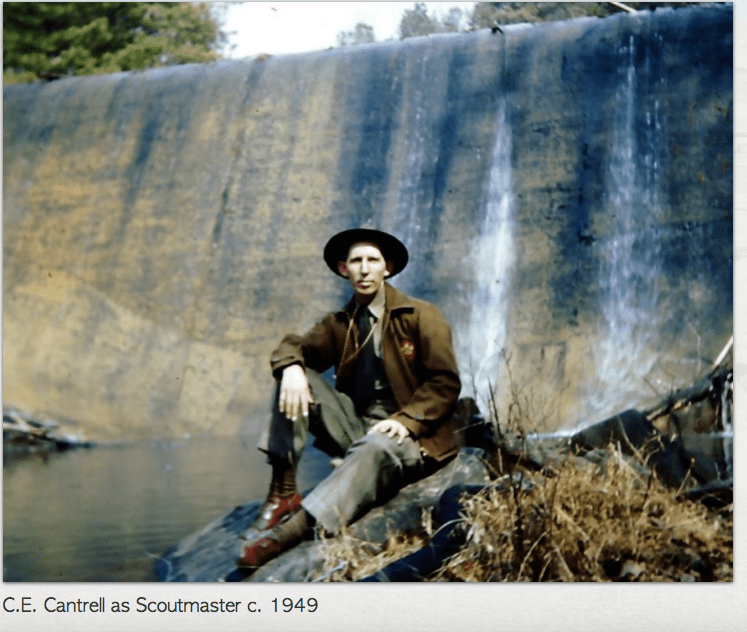
Considering Observing Ramadan?
(This was re-published from a 2012 post, with dates changed to reflect 2017 Ramadan.)
 CONSIDERING OBSERVING RAMADAN?
CONSIDERING OBSERVING RAMADAN?
From the National Helpers and Office
CONSIDERING OBSERVING RAMADAN? Below is a compilation of information about it, “Subud style”, and also there is information at the bottom about where to order tapes of Bapak talks in various formats.
Note to all: we are not sending out this information because we are urging people to do Ramadan, or because Subud espouses one religion over another. Bapak recommended that fasting has value for us individually, and we know that some members observe Lent or Yom Kippur instead of Ramadan, or do their own private form of fasting.
(See Bapak’s letter to a member on this topic, at the end of this message)
GETTING SUBUD MATERIALS ABOUT RAMADAN:
1. To print out Bapak talks,or listen to or download talks, go to
You can do a search,using key words, so you can ask for Ramadan Talks.AUDIO TALKS ARE MARKED BY TOPIC,SO ITS EASY TO FIND THE RAMADAN TALKS
2.Subud Books are available from www.bythewaybooks.com
Or go to –
www.subudusa.org
Click on Subud Books and Media
WHEN DOES Ramadan start this year?
Ramadan in North America, begins on the evening of Friday, May 26, 2017, so that the first day of fasting would be May 27, 2017.
For those observing the fast of Ramadan
Explanations of the Ramadan Calendar
Compiled from explanations given by Bapak, by Mas Sudarto and by Mas Prio
=====================================================
Eve of Ramadan: The way to observe Ramadan is to take a full bath, including hair washing, and also cutting the hair and the nails, the evening before the fast. Then, after you are clean, to state your wish to observe Ramadan as a sincere expression of your worship of Almighty God. Then stay up at night, preferably spending the night together with other Subud brothers and sisters, in the home of a member who is also observing Ramadan.
Around three o’clock in the morning, you should take breakfast and you should brush your teeth no later than 4:30 in the morning, and after this, no more smoking, not even gargling till 6:30 PM or 7:00 PM – along about sunset. (The local mosque can clarify as to the hour for breaking the fast.)
To break the fast, start slowly by drinking warm tea and a light snack; you can eat your dinner about half an hour or an hour later. Bapak also recommends no sexual union during the whole month of Ramadan. It is also beneficial to sleep as little as possible during Ramadan, not only on Nights of Power.
_________________________________________________
During the month of Ramadan: it is not permitted to have sexual intercourse, and our fasting must also include abstention from the following:
a) We must not use our ears to listen to gossip, quarrels or bad words.
b) We must not use our mouth to say anything wrong or unkind.
c) We must not use the emotions to reach the emotions or passions of others.
d) We must not use our eyes in a way that is not good or nice.
e) We must not use the heart and mind to imagine or think about unhappy things, fantasies or unrealities.
f) We must not eat or drink or smoke anything between dawn and sunset each day.
_________________________________________________
During the month of Ramadan, we have to fast thirty days, and during the thirty days of fasting we go through three important periods:
The first ten days (ending evening of 9th day Ramadan):
This is a period of putting the passion in an inactive state. During this period we are made aware that our passions become weaker and weaker day by day, and on the 9th day of fasting, it is felt that our passion is completely inactive.
The second ten days (ending evening of 19th day Ramadan):
This is a period of becoming aware that in general our attitude and actions are guided by our inner-self and the guidance day by day becomes stronger and stronger and on the 19th day of fasting our actions are as if in a complete latihan state, but in harmony with our daily activities.
The last ten days (ending evening of 30th day of Ramadan):
This is a period of receiving the lailatu ‘lkadar (the Nights of Power), and this is sent by God on the 21st, 23rd, 25th, 27th and 29th days of fasting. This lailatu ‘lkadar is not something that falls from above, but it forms a certain power which can change our state.
Most of the Subud members who fasted felt, after completing the fasting, that there were changes to their inner. Mostly, their spirit to worship became stronger and stronger and also the intention of doing ‘prihatin’ became stronger and stronger.
_________________________________________________
LAILATUL-QADR (The evening preceding 27th day Ramadan): Although it is generally accepted in the Moslem community that the last ten days of Ramadan are days of receiving, this particular evening is celebrated with special prayer, in the Moslem community, because it is thought that this is the day upon which the Messenger Muhammad received the verses of the Qu’ran.
TAK-BARAN: (30th day Ramadan): The last day of fasting. Sundown marks the end of the month.
IDUL-FITRI:
The Night of Forgiveness. At the end of Ramadan, we again take a full bath and put on new clothes, and then we should go to our family and our friends and ask forgiveness for whatever sin we have done. This is a time of special celebration and thanks to Almighty God.
+++++++++++++++++++++++++++++++++++++++++++++++++++++++++++++
With thanks to Leonard Dixon for the compilation of the info from Bapak, Mas Sudarto and Mas Prio.
Lent and Ramadhan
Letter to a member in England
Pewarta, March 1970
Copyright © 2007 the World Subud Association. All rights reserved.CodeNumber:70TJK3 ProvisionalTranslationForSubudMembersOnly
To a member in England In reality, Lent and Ramadhan have equal value. Christians feel that fasting in Lent is very important for them because it is derived and adapted from what was done and experienced by Jesus Christ.
You say that Jesus Christ carried out the religious observance of fasting in the wilderness for forty days at the time of Lent. This may be taken to mean that Jesus Christ fasted during this time so that his inner feeling might be swept clean of the influence of the nafsu causing darkness (wilderness) within.
For Muslims, the religious observance of fasting in the month of Ramadhan is the same. This too is derived and adapted from what was done and experienced by the Prophet Muhammad.
It is told that the Prophet Muhammad fasted in a cave at that time (this too means in darkness ). He carried out the religious observance of fasting in the cave so that the inner feeling could be swept clean of the influence of the nafsu causing darkness. It is therefore said that the revelation that he was to be the Messenger of God came to him in the cave. In other words, it was then that he received the first command of the One God.
This is Bapak’s explanation concerning these two religious observances of fasting, as seen from the spiritual point of view. So Bapak feels that Lent and Ramadhan are of equally great and high value.
Furthermore, any individual Christians, or Christians in general, may follow the religious observance of fasting during Ramadhan if they wish to do so, because, although this is not usually customary for Christians, if the fast is observed it is also a method whereby the influence of the nafsu, which always constitutes a temptation and a hindrance to the quiet of the inner feeling, can be separated and swept away from the inner feeling. Conversely, it is the same for Muslims who wish to carry out the religious observance of fasting during Lent.
Now, of course, you ask: how is it for us or for Subud members?
Bapak would like you to know that, because our brotherhood of Susila Budhi Dharma consists of members of various nationalities and religions, it is best for each member to observe the fast of his own religion unless he wishes to observe another as well.
Concerning the explanation you may want about prihatin: This actually is cutting down one’s pleasures in eating, sleeping and other enjoyments. For, if one practices prihatin, the heart is accustomed not to be deceived all the time by the nafsu. If the nafsu, which arise in the heart and mind, are not given their way so much (that is, if one restricts the pleasures of eating and sleeping and restrains the nafsu of anger and greed which drive away all contentment) then the nafsu will automatically weaken, and a feeling of patience, surrender, trust and sincere submission will become manifest.
Prihatin may be practiced by anyone wishing to do so, anyone who hopes to become a person of patience who surrenders with trust and sincere submission to the Will of Almighty God. Usually when a person can really carry this out his situation will be one of well being and happiness.
This kind of prihatin may be done by way of fasting every Monday and Thursday, without saur (that means without eating in the middle of the night) or by cutting down on one’s food every day; for instance, if one is accustomed to having beefsteak and potatoes, then one eats only potatoes and vegetables, provided one does not take too much of these either. One can also cut down on sleep; not sleeping often with one’s wife and not sleeping before midnight.
This is done in the hope that one’s life situation, or one’s lot in life, may improve; also so that one’s inner feeling, which still continues to feel dark or hindered by the influence of the nafsu, may become calm and quiet and the influence of the nafsu, which always interferes with the calm and quiet of the inner feeling, may be avoided.
This is why Bapak always says that a good and noble life can be achieved only if one really practices prihatin beforehand. It must be remembered that even Jesus Christ and the Prophet Muhammad did this. How much more does an ordinary person need it. One should not be quick to complain so often, or to feel despair just because one lacks things in life, nor should one feel overjoyed if one happens to have unusually good fortune.
This is Bapak’s answer to your question. Bapak gives praise and thanks to Almighty God and hopes that you will accept the above explanation in a good way.
From Bapak

